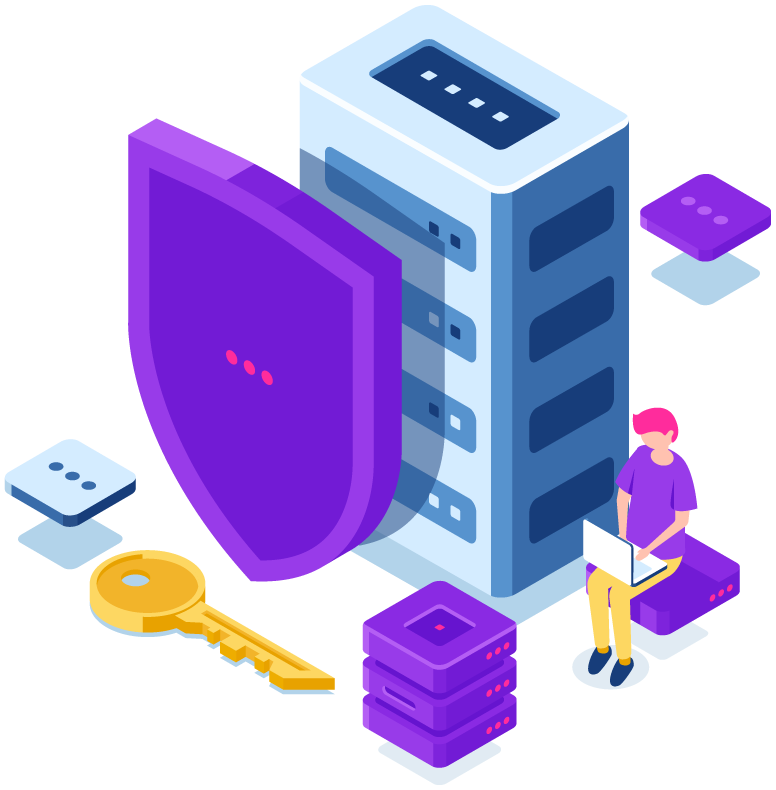Network Security
After installing and setting up computer networks, one of the most crucial issues for any organization is protecting the information from hackers and viruses. By implementing proper security measures, information protection in computer networks can be achieved. Security issues to prevent unauthorized access to computer networks and their resources must be implemented comprehensively and with great attention to detail. Network security management varies in different conditions. While a home or small office might only need basic security, large businesses require high-level protection and advanced software and hardware to prevent various types of attacks.
Given the increasing security threats, having a secure infrastructure in organizations and offices has become a necessity. When an organization's existence is publicly dependent on its IT department, it must utilize all available tools to protect its data. The engineering and network security unit of NEC Technical assists its clients in achieving their goals by implementing security standards. With the help of a specialized technical team, NEC Technical can guide your organization through achieving a standard information security management system in a continuous cycle of securing, including design, implementation, evaluation, and improvement, in the form of consulting, designing, implementing, and monitoring.

Types of Network Security Controls

Network Security Implementation
The goal of network security is essentially to prevent damage caused by the misuse of data. Several potential issues may arise if network security is not implemented correctly. Some of these issues include:
- Breach of confidentiality: Every business needs to keep certain critical information hidden from its competitors.
- Data loss: Data is a valuable asset for individuals and companies. Given the widespread use of backup technology today, the importance of network security should be clear. Losing data can cripple its victim entirely!
- Data manipulation: Accessing the system may be easily detectable, as some hackers like to leave signs of their success. However, data manipulation is far more dangerous. Data amounts can be altered, and while this may not seem like a serious concern, its significance becomes apparent when it comes to financial information.
The best approach to implementing good network security is to ensure that our network is fully prepared for threats. Below are four key actions for the network security implementation process:
- Security: Ensure that all components are properly authorized and protected according to authentication policies.
- Monitoring: Track network activities and maintain protective measures continuously.
- Testing: Evaluate the vulnerabilities of the network’s security policies by simulating an attack with a trusted individual. If circumvention and breaking restrictions are possible, more stringent techniques will need to be implemented.
- Improvement: Based on all the previous stages, gather data and use it to create better measures.
All network administrators must keep in mind that a good security strategy for a network involves ongoing review and maintenance. It is certainly not enough to establish security policies and let them run on their own. Attackers constantly update themselves, so network administrators must also stay updated with these advancements.




